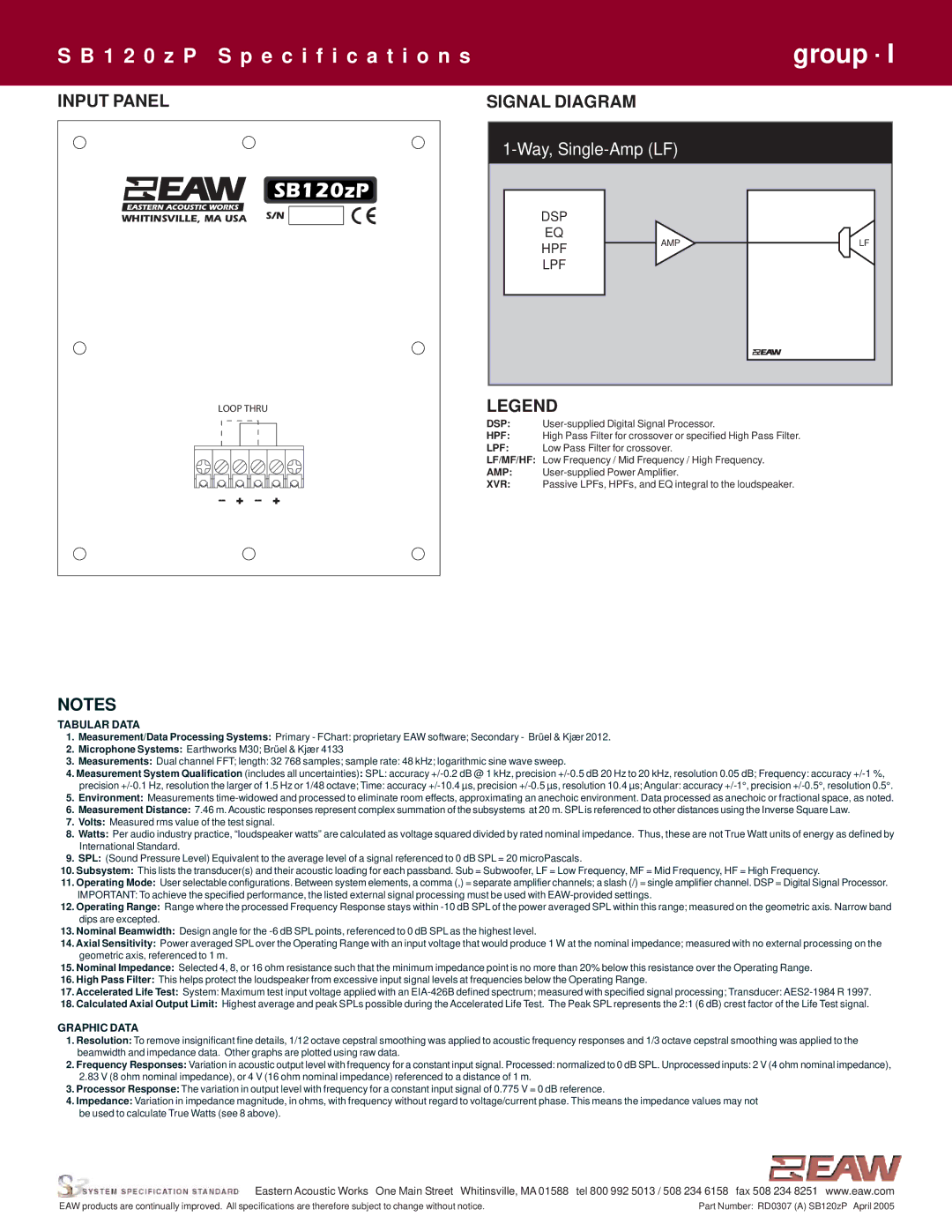SB120zP specifications
The EAW SB120zP speaker is a powerful and versatile addition to any professional audio setup, designed primarily for live sound reinforcement and installations. This high-performance subwoofer is engineered to deliver impressive low-frequency output, making it ideal for a wide range of applications, from concerts and festivals to various commercial venues.One of the standout features of the SB120zP is its robust construction. Built with durable materials, it offers both longevity and the ability to withstand the rigors of touring. The cabinet is designed to minimize acoustic coloration, ensuring a clean and accurate sound reproduction. It is finished with a rugged textured coating that can resist wear and tear while maintaining its sleek appearance.
At the heart of the SB120zP is its 12-inch cone driver, optimized for superior bass response. This driver is capable of handling high power, allowing it to produce deep and punchy low frequencies that can fill any space. The subwoofer is designed to work seamlessly with EAW's range of tops and full-range speakers, providing a cohesive sound experience where every element of the audio spectrum is defined.
The SB120zP features advanced technologies that enhance its performance. It includes a custom-designed low-frequency enclosure that maximizes output and extends the frequency response. The dual port design ensures efficient airflow, which minimizes distortion while maximizing sound clarity at all volumes.
Additionally, the SB120zP is equipped with versatile connectivity options, allowing it to integrate easily into any sound system. It supports both passive and active crossover configurations, giving users flexibility in how they implement the system. The built-in handles facilitate easy transport and rigging, making it suitable for both permanent installations and mobile setups.
Overall, the EAW SB120zP subwoofer combines rugged durability with exceptional sound quality, making it a reliable choice for audio professionals. Whether in a venue or on the road, this subwoofer promises to deliver the low-end power and precision needed to elevate any performance. Its blend of design, technology, and practicality sets it apart in the competitive landscape of professional audio equipment.

